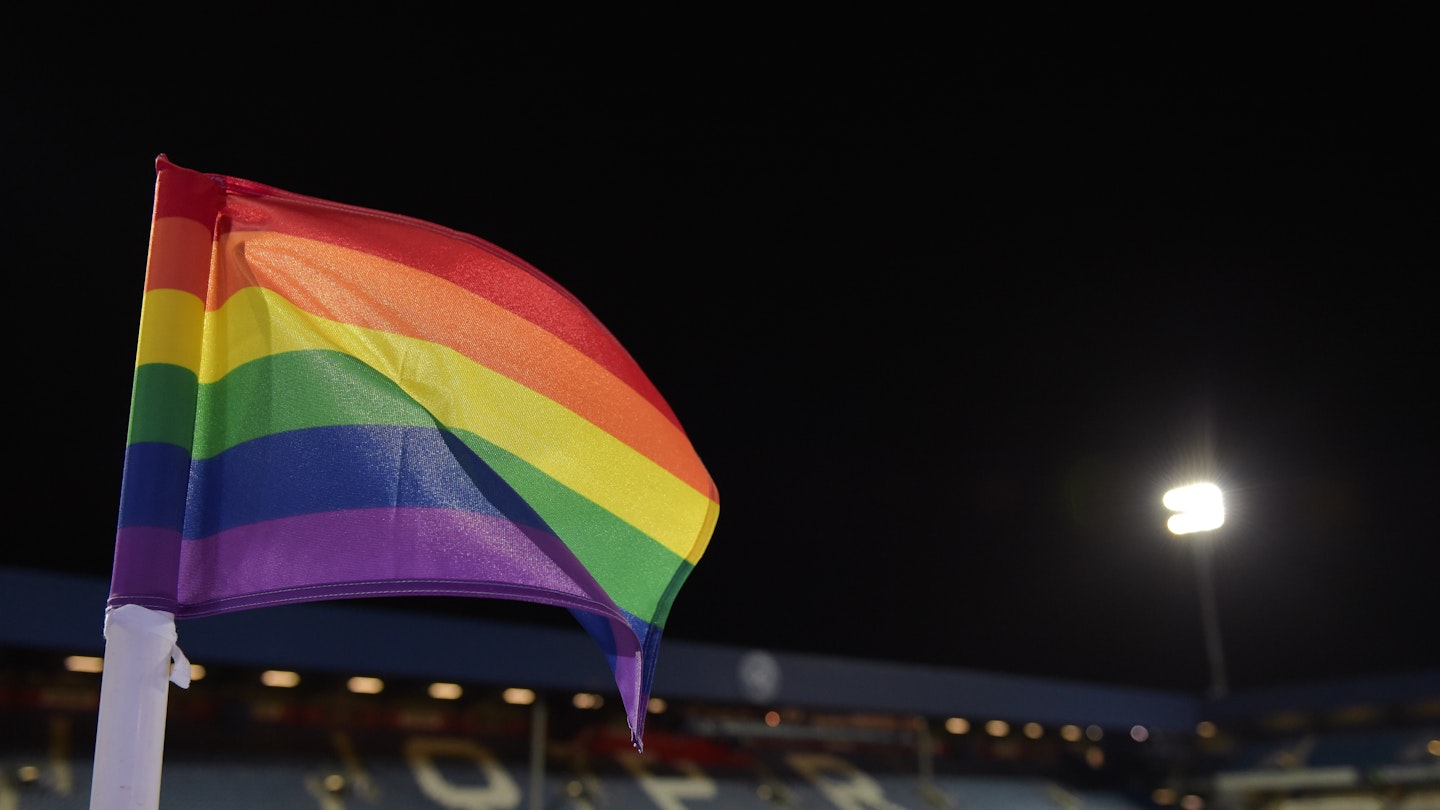It’s easy to turn a blind eye to something when your own life isn’t on the line. We shouldn’t, but we do, and the World Cup is a perfect example of that. Since it was announced that Russia would hold the global sporting event, there have been protests from people in, and allies of, the LGBT+ community. However, they went ignored. Now, we are seeing exactly why those protests began.
This week in Russia, the Metro reported that a homophobic attack against a french football fan left him disabled. Then, FIFA were forced to launch an investigation into a homophobic chant at the match between Mexico and Germany on Sunday. According to The Telegraph, 'puto'- the Spanish word for male prositute- was chanted as Manuel Neuer prepared to take a goal kick in a match between Mexico and Germany on Sunday. And just today, the BBC reported that Diversity House, an LGBT+ safe space for football fans in St. Petersburg, was shut down after organisers were told to leave by the the building owners without explanation.
Russia is a terrifying place to be LGBT+, since legislation was put in place banning the spread of homosexual ‘propaganda’ in June 2013, anti-gay abuse has heavily increased. Last year, the BBC reported that LGBT men in Chechnya, were rounded up and tortured in unofficial prisons, and according to Stonewall, an organisation raising awareness of LGBT+ issues, not one person has since been properly investigated or held accountable for it. In fact, Vladimir Putin to refers to the accounts of these men as ‘rumours’.
Football itself can't always be described as inclusive, which is why organisations like Stonewall have launched campaigns such as Rainbow Laces to help raise awareness of gay rights at matches. However, as evidenced from reports this week alone, in a country like Russia, being an LGBT fan at the World Cup is still hugely dangerous.
Despite FIFA, the World Cup organisers, promising to protect LGBT+ people within the stadium, placing three anti-discrimination match observers in each stand of the stadium, there were still homophobic slurs being chanted across the stadium on Sunday. In fact, football fans going over to Russia from England were warned ‘not to publicly display their sexuality’ under travel guidelines by the Football Supporters’ Federation. Incidentally, in direct contrast to this, Pride celebrations will begin all over the world in July.
It's in knowing all of this that we begin to question just how we can justifiably support the World Cup and still support LGBTQ+ rights. Should we be boycotting the World Cup? Or, is it possible to engage in it in a mindful way? How can we align our personal politics with our desire to support our team?
If we were to follow the example of activists, engaging in the competition is exactly what we should be doing. UK-based organization, Pride in Football, are showcasing perfectly how to reconcile supporting the World Cup and increase visibility of the LGBT+ community, vowing to fly a rainbow flag at every England game. In an even braver show of support, Aleksandr Agapov, head of the Russian LGBT Sport Federation, raised a rainbow flag in the stadium during Putin’s opening address. These acts are meant to not only create visibility of the community in football, but to raise awareness of the plight of LGBT+ people in Russia.
‘International sporting events like the World Cup offer an opportunity to unite people and promote positive social change’, said Kirsty Clarke, Director of Sport for Stonewall, an organization aiming to bring awareness to LGBT+ issues.
But while using the World Cup as an opportunity to invoke change for LGBT+ people in Russia is a positive alternative, Kirsty does note that ‘we know from Sochi little change was achieved as the result of the protests that took place throughout the Olympics.’
So how can we join activists and use the World Cup to try and help LGBT+ people in Russia? Essentially, it’s all about sharing stories far and wide, and maintaining that focus even when the World Cup ends.
‘After the last match has been played and the media spotlight dimmed, life goes on for LGBT people in Russia,’ Kirsty said, ‘If you love sport and want to stand up for equality, you can raise awareness about what’s happening, and support the work of local activists and network groups like the Russian LGBT network.’
As a global event, having people from all over the world shine a light on the abuses of LGBT+ people in Russia puts international pressure on the country’s government. While Vladimir Putin is hardly known to bow to the demands of other countries, it would undoubtedly have some impact if other world leaders began to raise questions and demand change.
So, you don’t have to call out the World Cup to be cancelled, but if you’re going to support your team throughout the tournament, it’s integral to also support the masses of people living in fear for their lives every day in Russia.
